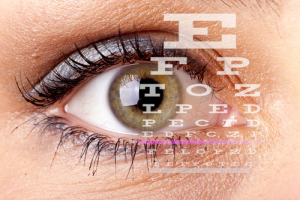Can LASIK Help You With These Common Eye Problems?
February 24th, 2016
According to World Health Organization (WHO), over 153 million people worldwide suffer from visual impairment due to refractive errors, a group of eye disorders that affect people of all ages. Eyes that are shortened or elongated can prevent light rays from focusing sharply on the retina, causing an inability of the eyes to focus images. Consequently, vision blurs and prescription glasses or lenses are needed.
Luckily, the field of ophthalmology has presented multiple surgical interventions to correct refractive errors. Laser-assisted in Situ Keratomileusis (LASIK) is the most common refractive eye surgery performed. This laser vision correcting procedure is an elective procedure that is performed to correct refractive errors (e.g. nearsightedness, farsightedness, and astigmatism). This is done by removing a stromal layer of the cornea, a dome-shaped transparent tissue of the eye, to flatten its anterior curvature.
If you live in the Huntsville or Decatur area, and your activities are impaired by refractive errors, here are a few ocular disorders that LASIK eye surgery can help fix.
Myopia
In cases of myopia (nearsightedness), a more elongated eyeball causes the image to focus in front of retina. As a result, myopic people have blurred distance vision and clear near vision. Myopia can be classified as low, moderate, and high. For low to moderate myopia, LASIK Eye surgery typically yields “very good” to “excellent” outcomes. For high degrees of myopia the outcomes can be less predictable, but a thorough analysis by your ophthalmologist can help determine the appropriate course of action.
Hyperopia
Hyperopia, or farsightedness, is the result shorter eyeballs and flatter corneal tissues. Because of this anatomic difference, light focuses beyond the retina. A person with hyperopia will see distant objects more clearly than nearby objects. In determining whether patient is suitable for LASIK Eye Surgery, an evaluation of pupil size and corneal thickness are taken into consideration.
Astigmatism
A refractive error that affects both distant and near vision is astigmatism, caused by an irregular corneal curvature. Those with astigmatism may need contact lenses or glasses to correct visual impairments, but contact lenses can be a great source of infection and astigmatism can be associated with pertinent headaches. Laser vision correction can significantly diminish this problem, if not totally eradicate it.
Other Indications
While having refractive errors make almost everyone a good candidate for this laser vision correction, there are specific medical criteria to be observed in order to be ideal for LASIK Eye Surgery. For example, a person must be 18 years old with stable prescription glasses or contact lenses for at least 2 years. History of wearing contact lenses must also be assessed because they change the shape of the cornea preventing the ophthalmologist to determine the correct current vision. Lastly, the cornea must be within a specific range of thickness in order for the ophthalmologist to safely create a flap during surgery. Otherwise, other options like All Laser Lasik and Bladeless LASIK may be considered.
While LASIK Eye Surgery is considered safe, people considering this to address their vision needs should educate themselves about indications and risks. Patient satisfaction is of utmost importance and it is important for them to understand that in some cases, it will only diminish the error and not totally eradicate it. Lastly, a thorough history and physical examination must be done to determine the best surgical option.
Here in towns of Huntsville and Decatur, Alabama, Dr. Lee is always available to cater to inquiries and concerns about LASIK eye surgery.



